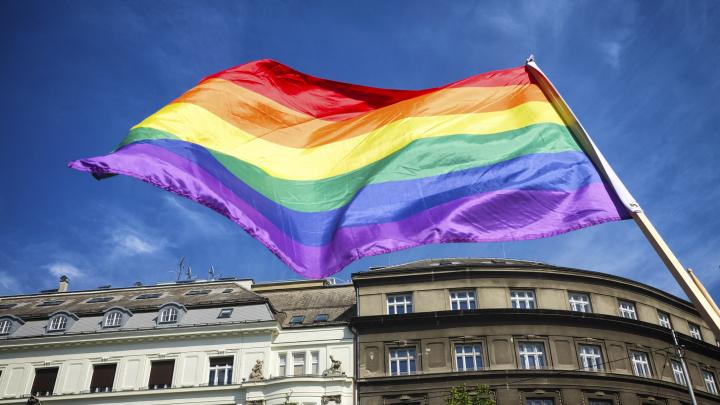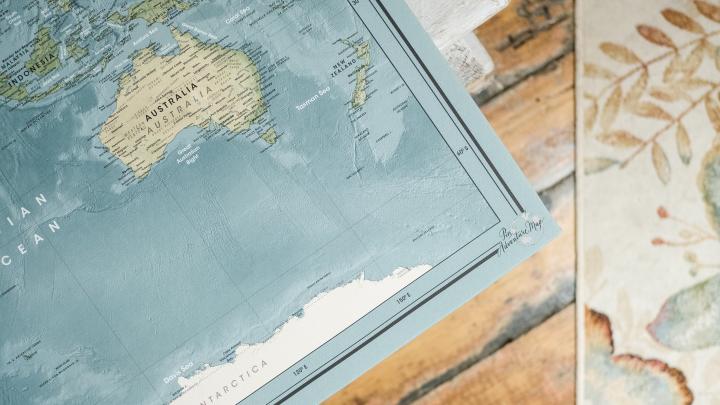‘Deviant States’, Deportation and Border Disruption
This article is one of a series of four representing the work of the ANZ Society of Criminology’s thematic group on Crimmigration and Border Control. You can see other projects being undertaken by group members on the ANZSOC_Borders webpage which is now included on the Border Criminologies website.
Posted
Time to read
Guest post by Henrietta McNeill. Henrietta is a PhD Candidate in the Department of Pacific Affairs at the Australian National University, and a 2021-22 Fulbright New Zealand Graduate Scholar hosted by the Center for Pacific Island Studies at the University of Hawai’i at Mānoa. She is a member of the ANZSOC Crimmigration and Border Control Thematic Group.

During the COVID-19 pandemic, Pacific Island states were among the first in the world to close their borders entirely to prevent the spread of the virus. Border closures came with numerous challenges, such as repatriating citizens who ordinarily lived on-island, and economic pressures created by the lack of tourism.
Challenges were also faced in managing the arrival of criminal deportees removed to Pacific Island states, particularly from Australia, New Zealand and the United States (US).
Before the pandemic, between 4-6 deportees were sent to Samoa per month from the US, Australia and New Zealand. Similarly, approximately 35 deportees are returned annually to Tonga from the same deporting states - it is estimated that there are over 1000 returned criminal deportees residing in Tonga, which has a total population of 110,000.
Samoa and Tonga requested through diplomatic channels that deporting states press ‘pause’ on criminal deportations while their borders were closed. With pre-existing community concerns about deportees, it was considered that the arrival of deportees during a pandemic may contribute to disruption and instability at an already-difficult time.
Australia and New Zealand complied with the requests of Pacific Island states, halting deportations as requested- albeit with some questionable carceral measures for those awaiting deportation.
However, the US instead pursued their deportation program, going to the length of escorting deportees to Samoa on privately chartered planes, in the absence of commercial flights.
But this did not last. Samoa and Tonga maintained their respective border closures and refused to accept deportees.
Katja Franko has written about ‘deviant states’, those which do not accept their own citizens when deported, which are then penalised by the deporting state. In this deviation and the resultant diplomatic friction, it is not just the deportees who are affected, but frequently the state as a whole, through mechanisms like aid funding and through visa access which affects any individual of that nationality trying to migrate.
However, COVID-19 was unprecedented in the sense that border closures were not only about ‘deviance’ or avoidance of deportees, but about public health and a practical extension of closures affecting all travellers, not just deportees.
The tools that the US used to punish Tonga and Samoa’s ‘deviance’ did not take the pandemic into account. In 2021 the US removed both Samoa and Tonga from the list of states whose nationals were eligible for the H2-A and H2-B temporary seasonal work visas. The ICE determination was that both states were ‘at risk of non-compliance’ because they were not issuing required travel documentation for deportation, or accepting deportation charter flights, which ‘does not serve the U.S. interest’.
These are the same tools that had been used before the pandemic. In a previous example of response to such refusal, Samoa was removed from the American list in 2018 after refusing to accept deportees who were not proven to be Samoan citizens. Through developing new processes in 2019, Samoa made it back onto the list of accepted nationalities once it had been deemed ‘cooperative’ again.
Such punitive measures are clearly aimed at pressuring states into accepting deportees, and they are even more economically significant for Pacific Island states reliant on remittances from temporary work visas. One could question the rationality and fairness of the US action, particularly during a pandemic when Pacific Island economies and remittances were already hit hard.
Australia and New Zealand both have sizable temporary seasonal worker programmes for Pacific workers. While these programmes experienced complexities due to border closures in both sending and receiving states, neither Australia nor New Zealand tied work opportunities to deportation acceptance – in fact, quite the opposite - even pushing seasonal workers from the Pacific Islands to be at the front of the queue as borders eased open to promote economic development and remittance flows again.
The reopening of Samoa and Tonga’s borders on 1 August 2022 will likely mean that both states will be added back to the list of ‘cooperative’ states whose nationals are eligible for the H2-A and H2-B visas to the US, but there remain challenges for deportee arrival management.
There is a ‘significant backlog’ of deportees awaiting deportation to Pacific Island states from the Pacific triangle; if they were all to travel as soon as the borders open, it has been cautioned there are potentially negative effects particularly if reintegration for large numbers of returnees is not considered or resourced in advance of their arrival.
However, the continuing question is the fairness of passing one-sided judgements about what makes a ‘deviant state’, particularly during an unprecedented global health crisis. The US did not enact border closures to the same extent that Pacific Island states did, and when Samoa and Tonga would not accept deportees when the US wanted to send them, there were punitive consequences affecting the livelihoods of many migrants, not just deportees.
Any comments about this post? Get in touch with us! Send us an email, or post a comment here or on Facebook. You can also tweet us.
How to cite this blog post (Harvard style):
H. McNeill. (2022) ‘Deviant States’, Deportation and Border Disruption . Available at:https://blogs.law.ox.ac.uk/border-criminologies-blog/blog-post/2022/11/deviant-states-deportation-and-border-disruption. Accessed on: 25/04/2024Share
YOU MAY ALSO BE INTERESTED IN
With the support of









